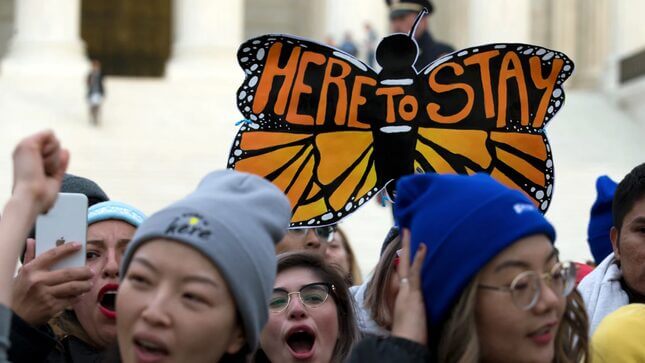
Image: Getty
Deferred Action for Childhood Arrivals, or DACA, was always meant to be a temporary solution. An executive order signed by President Obama in 2012, it was crafted only after sustained political pressure by young undocumented immigrants made action necessary, in the face of a Republican-controlled Congress unwilling to pass even the mildest of legislative fixes. DACA was a victory, but an imperfect one that left the vast majority of undocumented immigrants outside of its protections: it excludes those who were born before an arbitrary cutoff date or who came to the United States after the age of 16, as well as young people who dropped out of school or have a criminal record. Still, it was a lifeline for the hundreds of thousands of young undocumented immigrants who in the past seven years have been able to get a work permit, go to school, raise their families, and live their lives (relatively) free of the threat of deportation.
But now, the fate of almost 700,000 DACA recipients rests in the hands of the Supreme Court, two years after Donald Trump announced he planned to end DACA, a decision that quickly led to a series of lawsuits that have wound their way to the highest court in the land. On Tuesday, the Supreme Court will hear oral arguments in a series of cases that will determine the future of DACA and, crucially, the limits of presidential power to craft immigration policy. For the young people who are fighting for their futures, they know that, as 30-year-old DACA recipient Daniel Briones put it to Jezebel, the stakes are much higher than just the legality of the program they depend on—in a real way, they’re also fighting for the ability of their families and their communities, who have been increasingly under attack in a Trump administration that is seemingly attempting to outdo itself in cruelty with each passing day, to be able to remain.
-

-

-

-

-

-

-

-

-

-

-

-

-

-

-

-

-

-

-

-

-

-

-

-

-

-

-

-

-

-

-

-

-

-

-

-

-

-

-

-








































